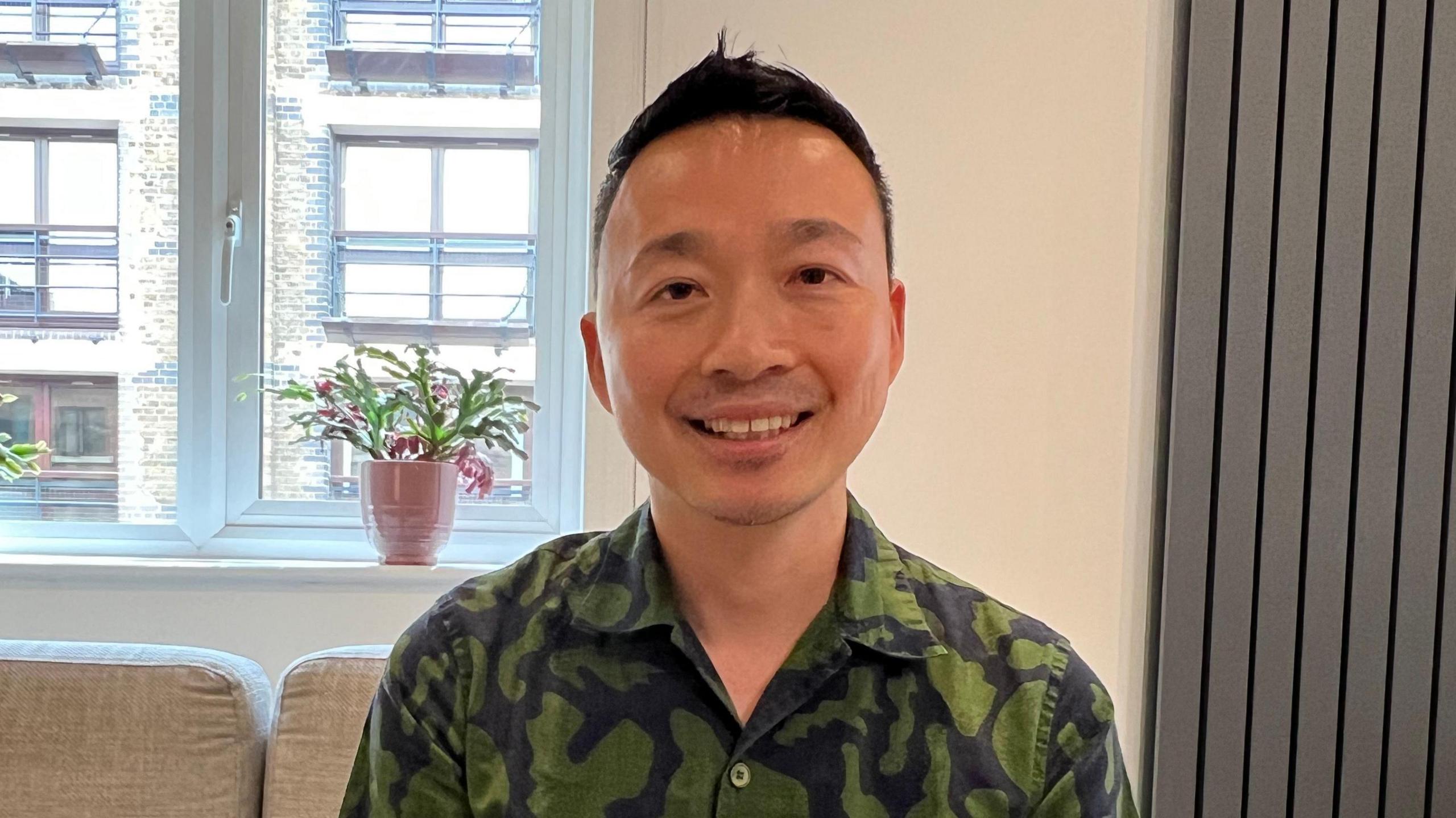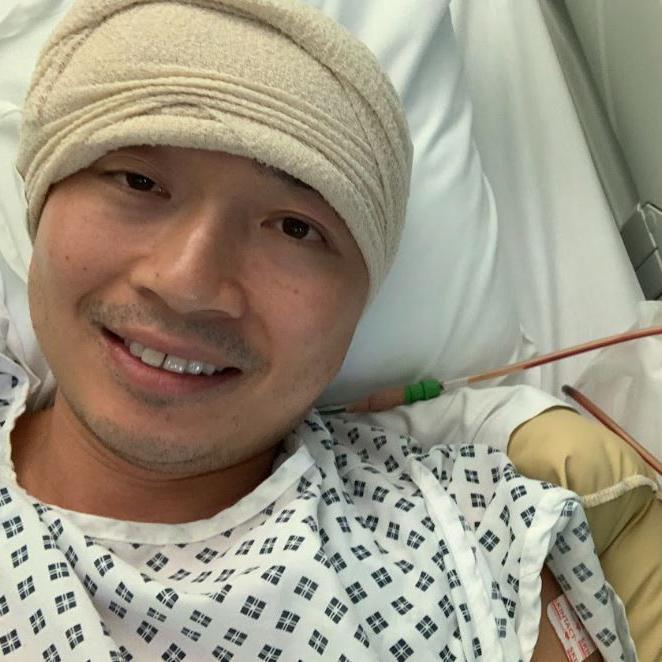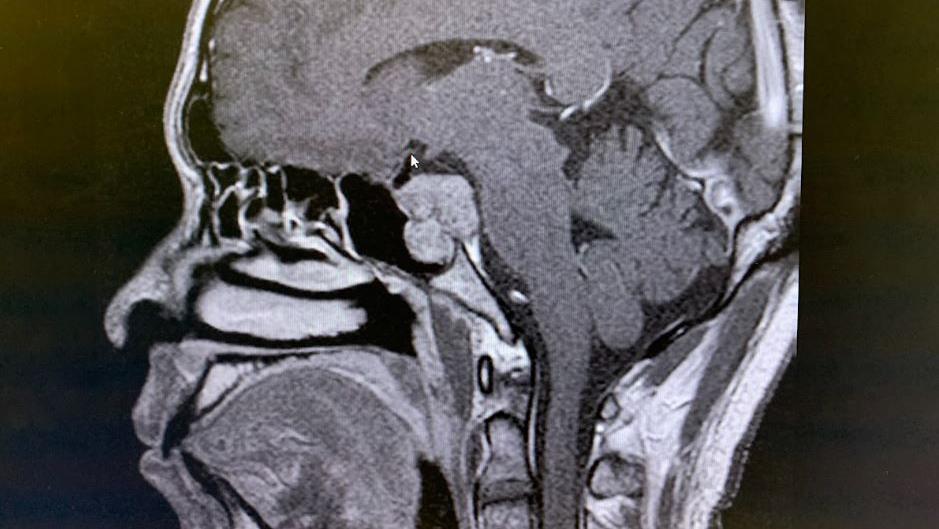Cancer survivor reunited with life-saving optician

David Ly’s cancer treatment included three surgeries in the space of six months
- Published
A cancer survivor has been reunited with the optician who set him on a life-saving journey towards diagnosis and treatment.
David Ly, 44, started seeing double and assumed he just needed glasses.
He went to an optician in central London, who urged him to go to Moorfields Hospital Accident and Emergency immediately.
“A trip to go get my eyes checked out turned into a rare, one-in-a-million bone cancer diagnosis,” Mr Ly said.
Mr Ly discovered he had a rare, slow-growing, hard-to-spot bone cancer called chordoma.
His double vision was being caused by a tumour 23mm in size at the base of his skull which was pinching a cranial nerve, but he had no other symptoms.
He underwent three surgeries and received proton beam therapy in Manchester.
In the four years since, Mr Ly has been longing to find and thank the optician.
But he discovered she had left the branch and moved away soon after his appointment, and her former colleagues were not able to help him locate her.

David Ly has for years wanted to find optician Ciara Creamer to thank her for helping to save his life
BBC London stepped in to track down the optician - Ciara Creamer - and surprised Mr Ly by reuniting them.
“I’m so relieved to be able to thank Ciara," Mr Ly said.
"I’m really grateful she pushed me to get further checks and take my symptoms seriously.
“Her ordinary day was an extraordinary day for me. It began my road to diagnosis and recovery.”
Ms Creamer said: “I’m glad I urged him to go to A&E straight away that Friday evening.
"We don’t usually hear back when we refer people, so it’s lovely to see David again.
"I’m glad I was of help, and I really appreciate him saying thank you.”
A cancer survivor has been reunited with the optician who helped save his life.
The Bone Cancer Research Trust says there are about 560 cases of primary bone cancer a year in the UK, and 8% of those are chordoma.
The charity says it is vital that primary healthcare professionals can recognise potential symptoms because early diagnosis increases the chances of survival.
Symptoms vary depending on the location of the tumour but can include: numbness in the limbs, tingling sensations, disturbances to vision, swelling, and pain in the back, neck or head.

Chordoma is a rare, slow-growing type of bone cancer which most often occurs in the spine and base of the skull
Will Burchell, CEO of the trust, said the optician’s actions may have made all the difference to Mr Ly's survival.
“It’s no exaggeration to say that, in this instance, spotting it at this early stage may have saved David’s life.
"The sooner people are able to get treatment that they need, the better their prognosis," he explained.
Pupil with cancer able to attend school using robot
- Published10 July 2024
'Doctors found a tumour when I got my West End break'
- Published9 July 2024
'I'm scared my daughter will die in hospital'
- Published11 July 2024
Related links
Listen to the best of BBC Radio London on Sounds and follow BBC London on Facebook, external, X, external and Instagram, external. Send your story ideas to hello.bbclondon@bbc.co.uk, external